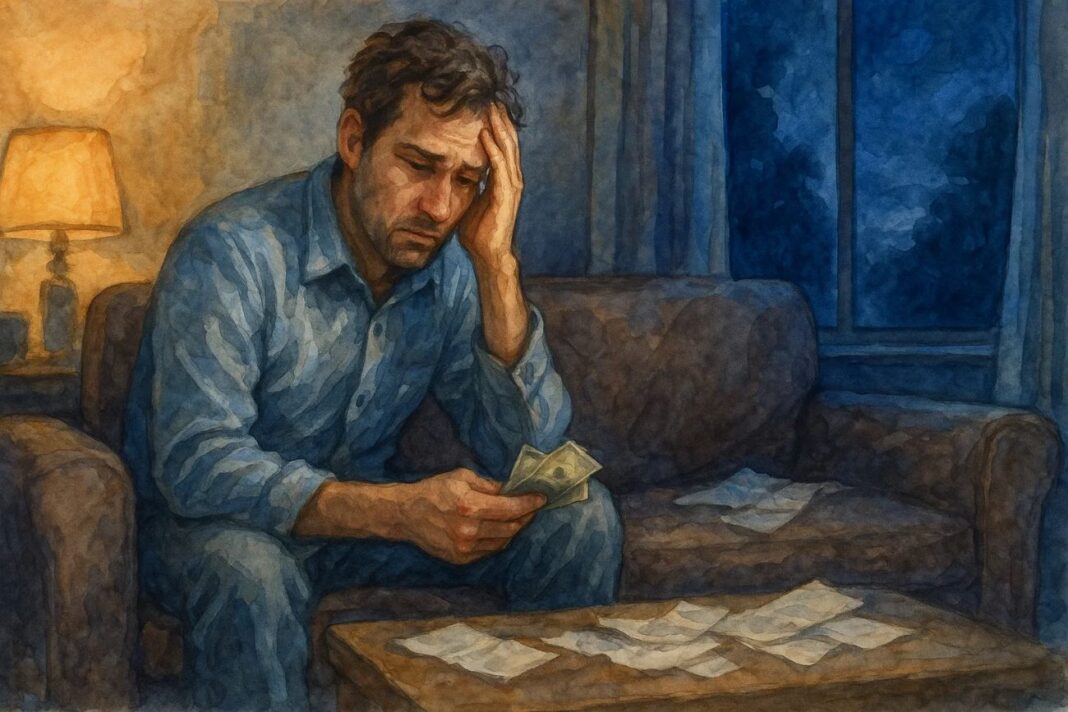A financial therapist can help you navigate mental roadblocks that may be limiting you. But how do you know whether you truly need one? That will require some self-reflection.
According to Wasserman, the number one question to ask yourself is: Are you confident in your relationship with money? If the answer is no, she said, it is time to talk to a financial therapist. “Just like if you needed a tune-up with your relationship, eating, or exercise, you would consult an expert. The same is true with your relationship with money.”
And if you’re still unsure, your body may already know the answer. Experiencing sleepless nights, nausea, headaches, or changes in your appetite as a result of your financial situation can be strong indicators that it’s time to get some professional help. These symptoms are your body’s way of signaling that financial stress is taking a toll on your well-being and may even be impacting your physical health.
You might benefit from speaking with a financial therapist if you:
Avoid checking your bank account balance
If you feel negatively about your financial situation, ignorance may feel like bliss. A study by MarketWatch found that 42% of people avoid looking at their checking account balance out of fear. This avoidance, however, can create a snowball effect, leading to financial disconnect.
The problem: Staying in the dark about your account balances can lead to making uninformed financial decisions. Plus, you can incur unnecessary bank fees, such as late fees and overdraft fees. And you’re more susceptible to fraud if you’re not monitoring your account balances and transactions. Over time, this passive approach can deteriorate financial stability, leading to more stress and anxiety.
Fight about money with your partner
It’s easy to become frustrated with your partner if their financial behaviors don’t align with your own, or if there’s financial infidelity within a relationship. These conflicts can stem from deep-seated beliefs about money, and without addressing them, they can cause tension and strain in a relationship.
A therapist can help you and your partner understand your financial habits, where they come from, and how to adjust those habits for the sake of your relationship and your financial future together. By facilitating discussions about financial expectations and goals, a financial therapist can promote a healthier relationship dynamic.
Spend or gamble compulsively
Spending money and gambling aren’t necessarily cries for help on their own, but if you’re overspending or gambling away your life savings, this could signal a deeper emotional issue. Compulsive spending or gambling often acts as a temporary escape from stress or emotional distress.
Many people find comfort or get a high after spending money, but this high is often short-lived and can lead to a massive financial spiral, making it difficult to save money, pay down debt, and build wealth. This behavior not only threatens financial security but can also affect personal relationships and well-being.
Feel anxious about spending money
Avoiding spending money can also be a sign of emotional distress and signal the need for a financial therapist. Feelings of anxiety related to spending can impact your quality of life — you may avoid making necessary purchases or investing in your future. This anxiety-driven behavior can cause missed opportunities and prevent personal growth.
In severe cases, this reluctance to spend can hinder your ability to maintain a standard of living that supports well-being and fulfillment. By addressing these anxieties with a financial therapist, you can work towards a more balanced and positive relationship with money, enabling you to embrace financial decisions without fear.




